It was pouring rain and blowing wind when we woke up, but by the time breakfast was over, it had cleared up, so I went for a walk. A 15-minute walk from our house is the Bajo del Tigre Reserve, which is part of the Children’s Eternal Rainforest. This is a 57,000-acre preserve that is run by the non-profit Monteverde Conservation League that was established in the 1980’s.
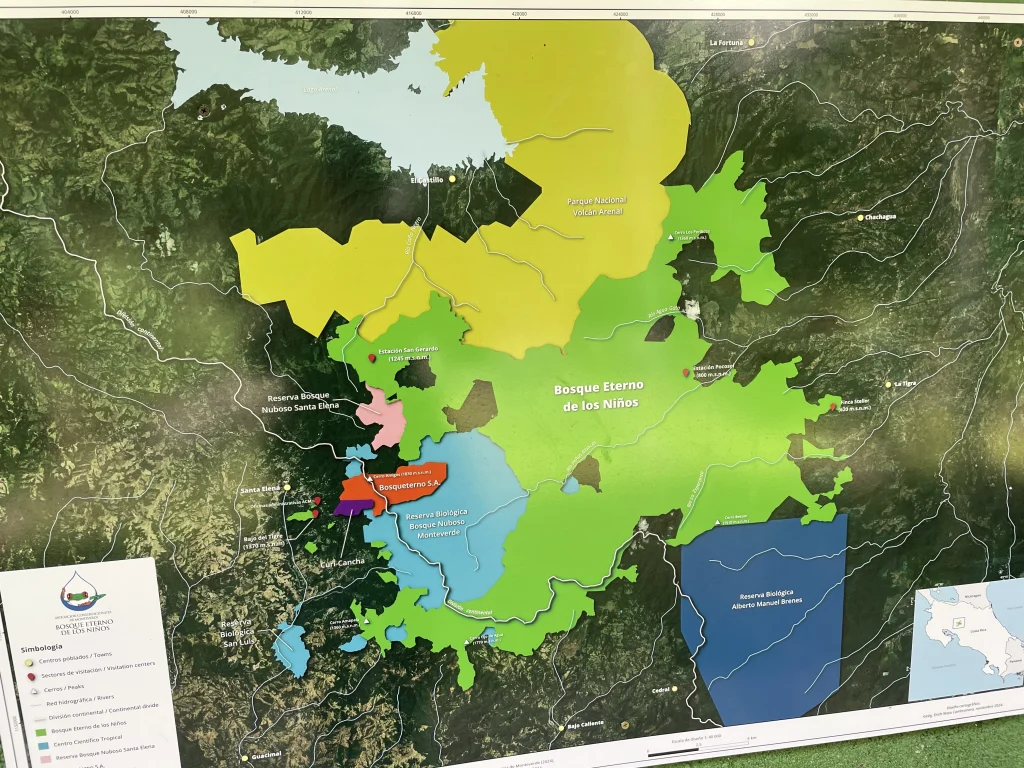
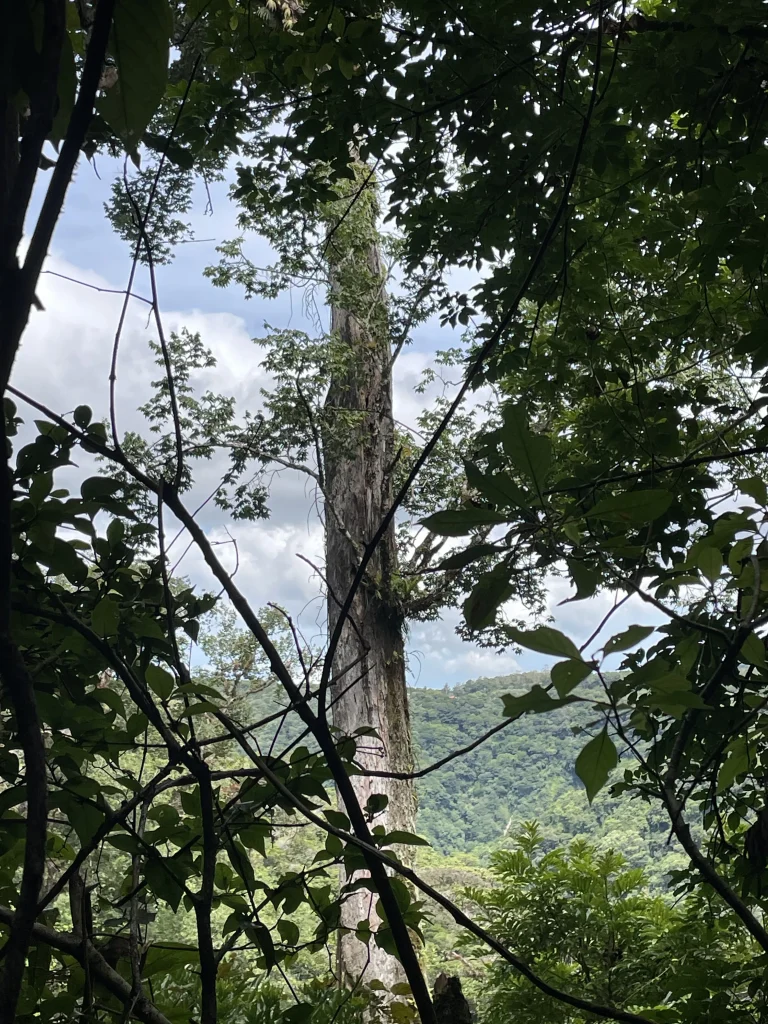
I took a 2 km loop on well-marked trails, mostly downhill on the way out and then uphill on the way back. I didn’t see anyone else on the trails, just the trees, which were alive in the wind, each whispering or speaking or shouting in their own particular rustle. I took lots of pictures of the trees, many with ficus (strangler vines) growing around them that will eventually kill the tree, leaving a hollow structure.
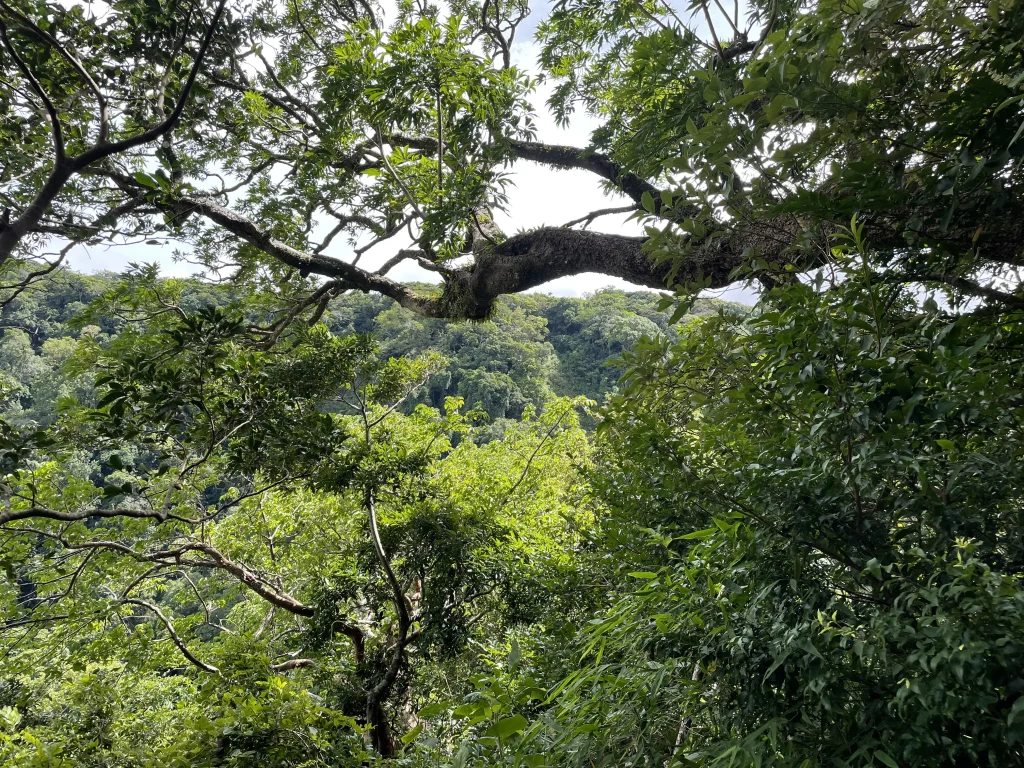
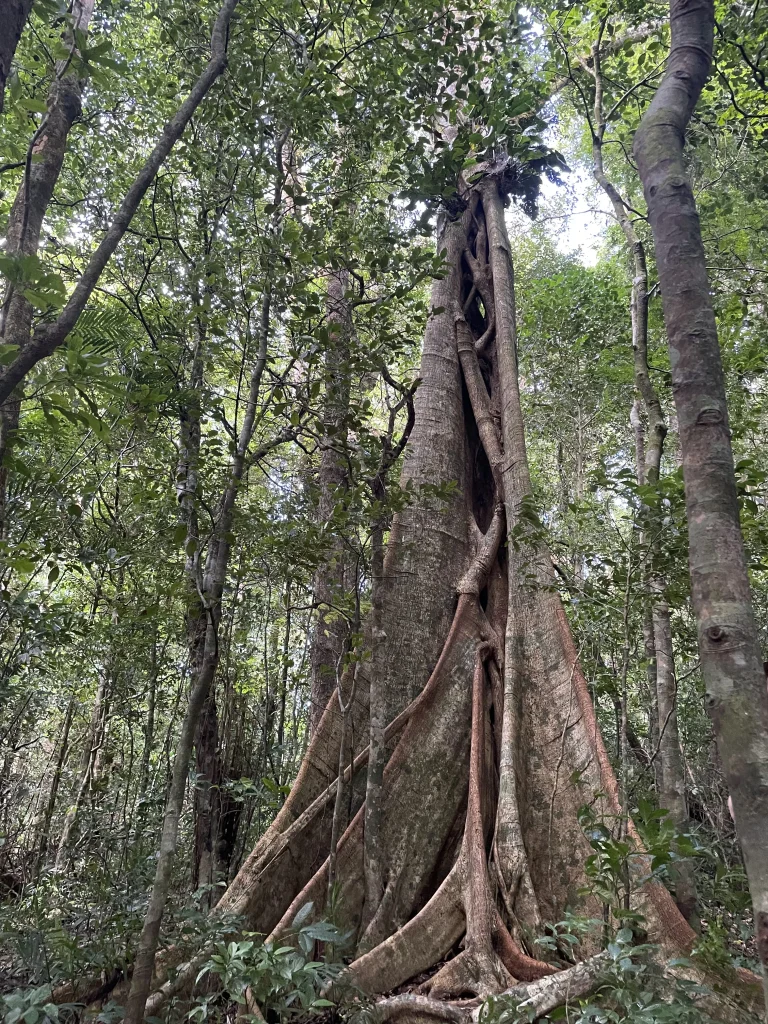
Inspired by this connection of life and death, I began to look at trees that had fallen and to stumps – each nurturing so much other life, even in their decay. This one stump was even still working with roots deep in the soil to hold back a hillside.
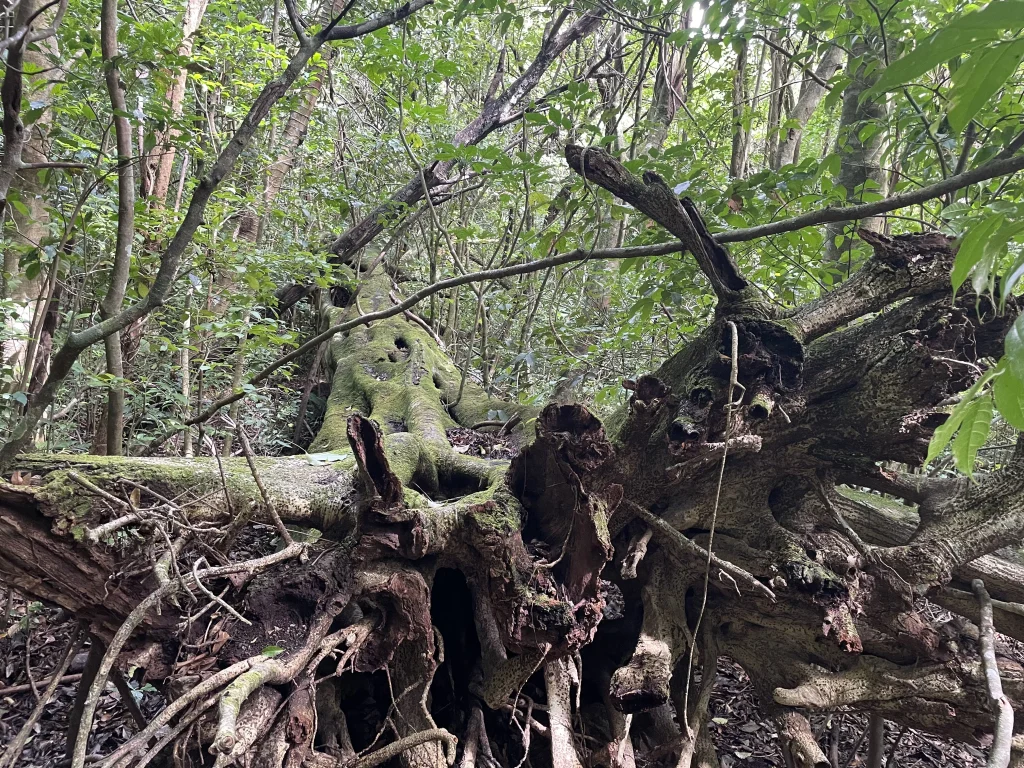
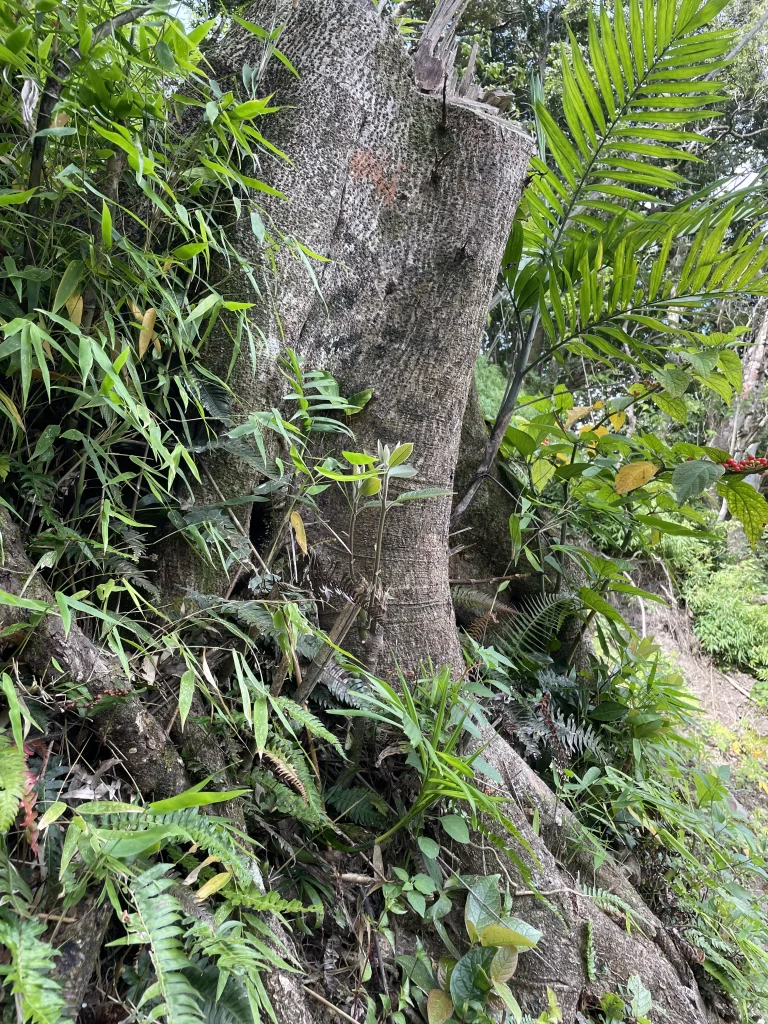
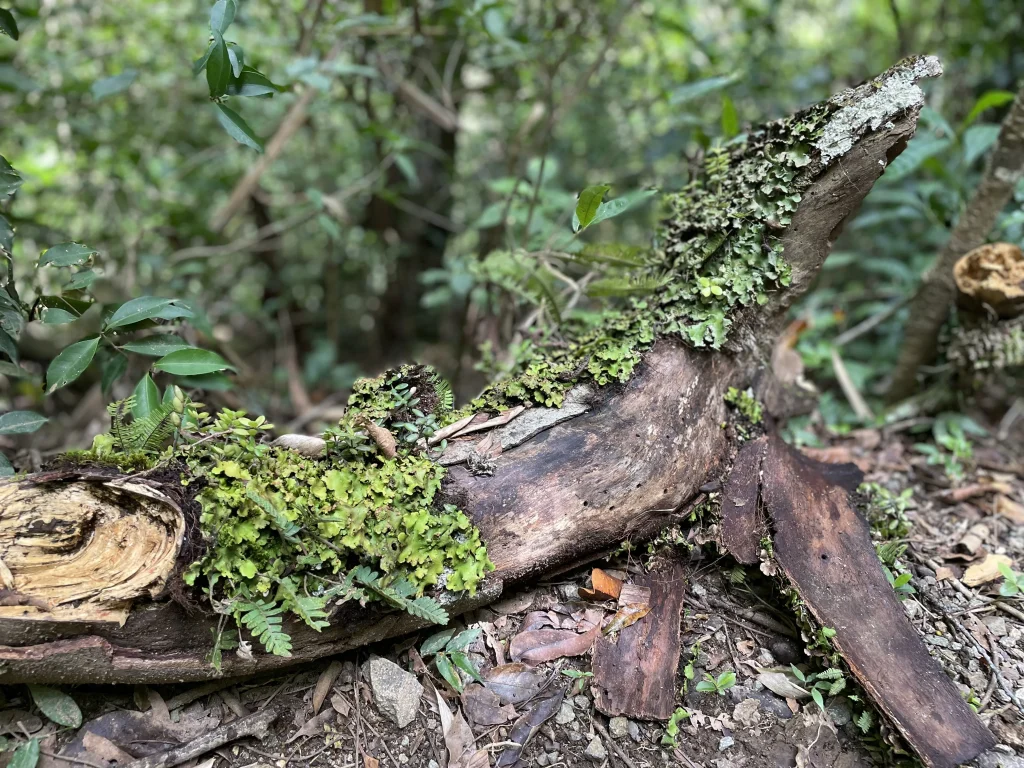
I only caught glimpses of the fauna of the forest. The only animal I saw fully was a brown squirrel who wasn’t at all shy, sitting on the trunk of a tree and scolding me as I approached. His scolding startled another creature in the underbrush, which I think was a Highland Tinamou (after I spotted one on another hike). They are hard to see unless you catch one in motion, as they blend in with the colors of the forest floor.
On a side note, we have spotted capuchin monkeys, although just in our everyday life out-and-about in the community, rather than in the forest. Pat saw this one doing a high-wire balancing act! I saw another pair right behind the coffee shop in the community center, jumping from branch to branch.
On my hike, I also spotted lots of butterflies, moths, and other winged insects. The only one I knew the name for was the blue morpho. We see these beautiful big butterflies every time we take a walk, and their flight is a captivating fluttering from the brilliant blue of their top wings to the camouflage dark brown and grey of the wings’ undersides.
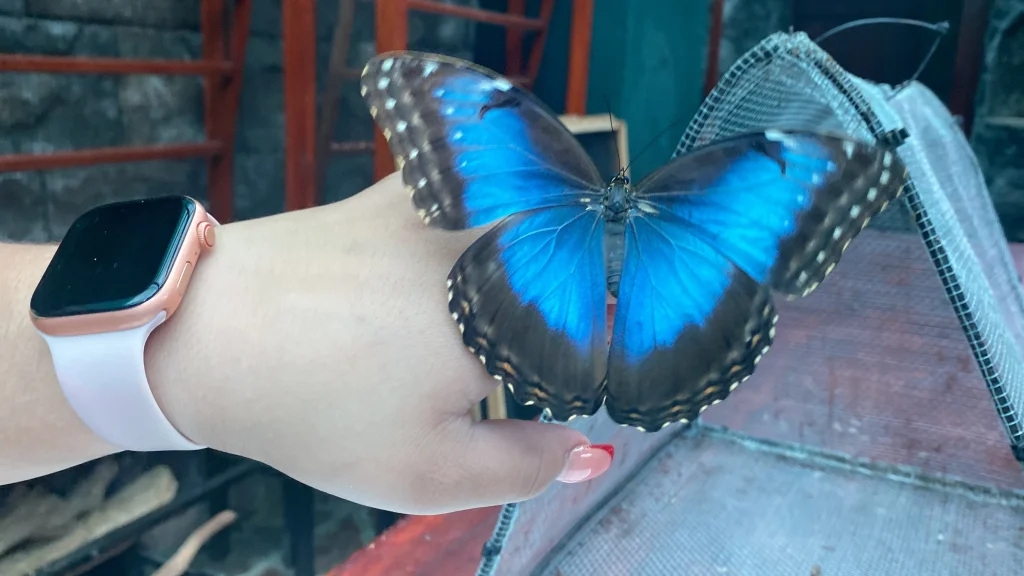
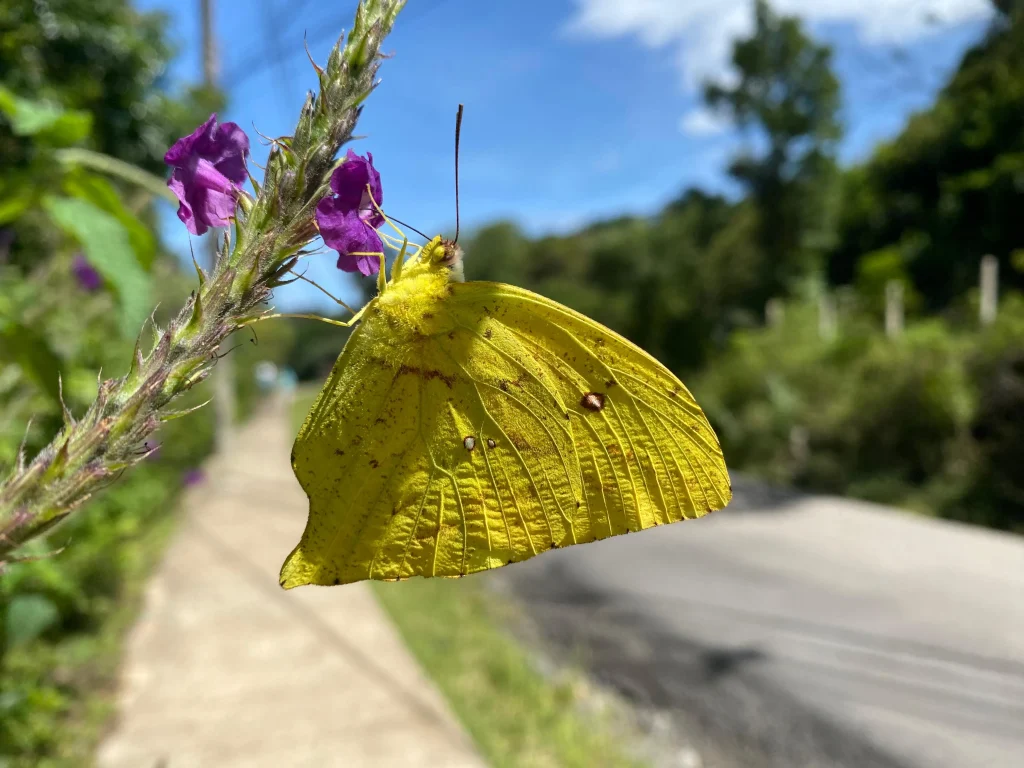
But the most riveting part of the walk were the bird songs – I didn’t see a single one, but I heard many! The Pajaro Campana (three-wattled bell-bird) in particular followed my steps for a long stretch. Their call begins with a low croak, then steps up, almost like an arpeggio. The third note is a high-pitched and piercing whistle that can be heard for miles. Although I searched the trees, I never spotted one. Later the next week when I went back with Patrick and Sophie, he went off on a slightly longer trail by himself and made this amazing video of a bell-bird where you can see and hear it vocalizing.
I look forward to returning often to this beautiful place and hope I can spot the Pajaro Campana myself before the year is out!
🚨 Update! On Monday, August 25, I returned for another walk in Bajo del Tigre, and following advice to look for the Pajaro Campana on dead branches, I managed to spot the bird twice! The second time he wasn’t very high up and I had to walk – very quietly – almost underneath where he was perched, so I got a really good look. When I described these locations to the staff, they said these were two of the three preferred spots of one particular bird, who has a triangle of terrain he covers. So if you come to visit, we can take a walk in Bajo del Tigre together and maybe, if we are lucky, we will spot the Pajaro Campana again!
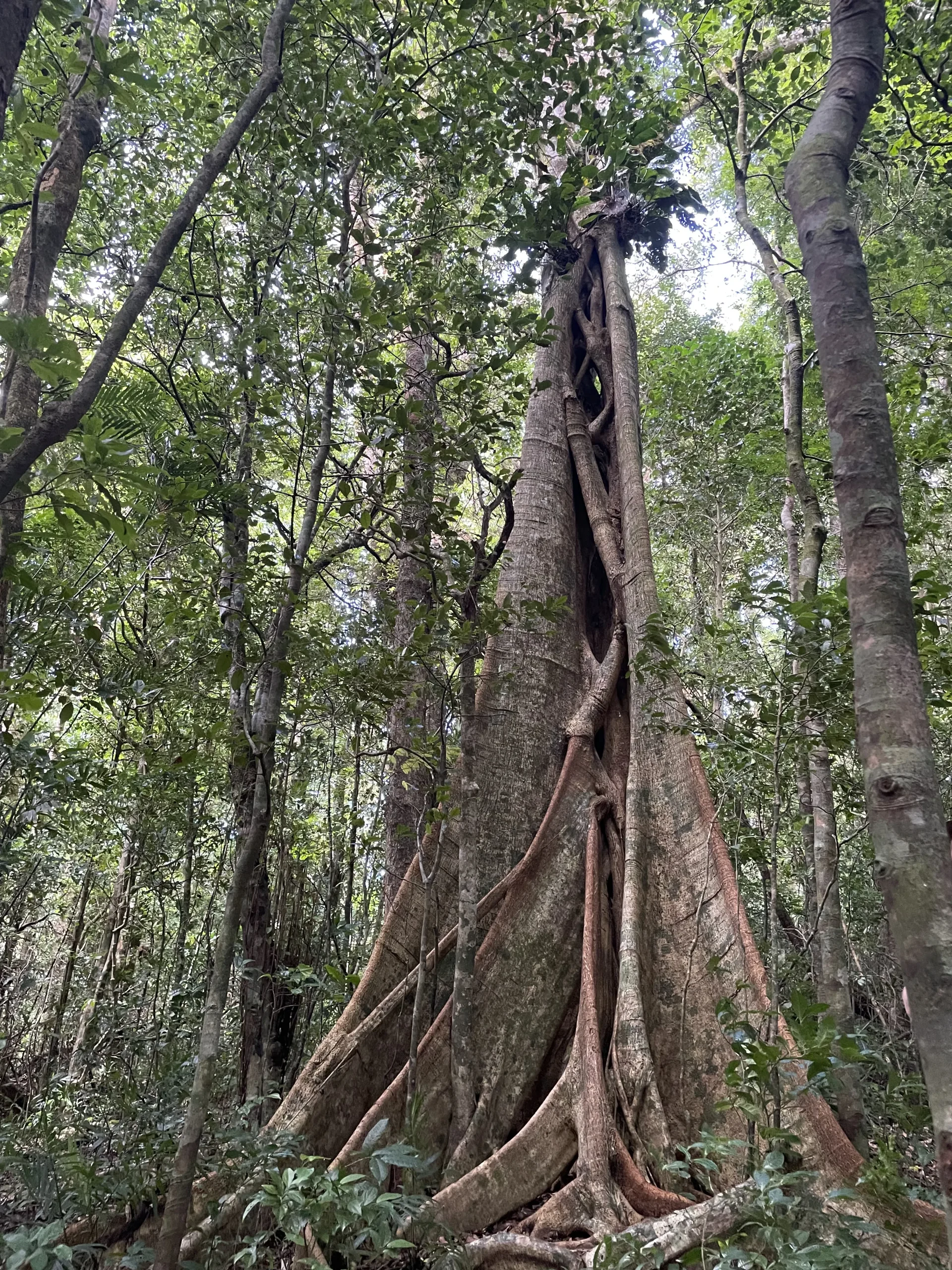
Leave a Reply